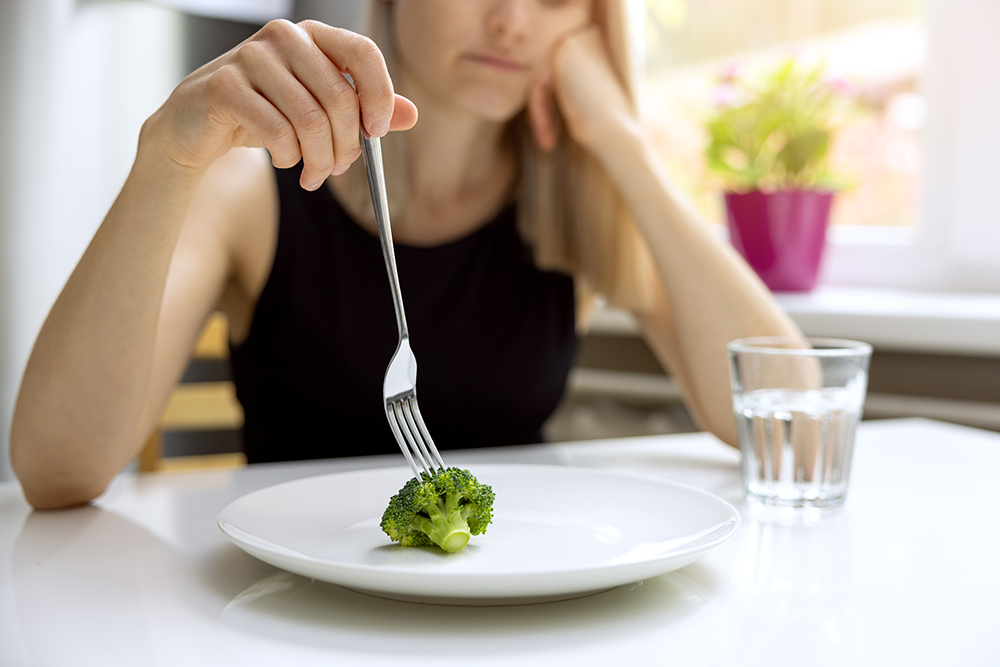The Role of the eating disorder nutritionist in family-based therapy
According to a recent study done in January 2022, between 0.3% to 1% adolescents suffered from anorexia nervosa. Out of those numbers it has been reported that more girls were impacted by the disease although those numbers could be underestimated due to under-reporting.
It is even more important to treat anorexia because of its serious life-threatening nature on the sufferer but also the detrimental impacts on the families.
Here are some examples of negative impacts on the family:
Emotional Distress: an eating disorder is often complex to understand and navigate. As a result, the family of the person suffering from anorexia could feel helpless, guilty, frustrated and scared. This could consequently strain the relationship amongst the different family members.
Disturbance in the family Dynamics: As the anorexia sufferer faces their own challenge to increase their food intake, mounting tension could result between the parents and the child as the latter feels pressured to eat more. On the other hand, the parents might feel overwhelmed by the demands of caregiving and eating disorder treatment.
The concept of Family-Based Therapy (FBT) as treatment approach for anorexia
Family-Based Therapy (FBT), also known as the Maudsley Approach is often the treatment of choice used to treat anorexia in adolescents.
The approach places heavy emphasis on the importance of family as support in the recovery process instead of viewing it as an individual problem. It also takes into account the family dynamics as a contributing factor in the development and maintenance of anorexia.
FBT for anorexia treatment typically consists of three phases, each with specific goals and interventions.
– Phase 1: For this initial phase, the focus is put on decreasing food restriction and restoring weight if needed. To do so, any food-related task such as planning, cooking and portioning is delegated to the parents. Emphasis is also placed on meal supervision and meal support from the parents.
– Phase 2: In this phase, the eating disorder team will teach the family how to gradually give back the control to the child suffering from anorexia. The latter will be taught how to nourish their body adequately and given the tools needed to navigate eating disorder thoughts (if still present).
– Phase 3: The final phase involves consolidating progress and preparing for relapse prevention. The eating disorder specialists work with the family to address ongoing challenges, strengthen coping skills, and reinforce healthy habits.
A multidisciplinary team of healthcare providers comprised of physicians, therapists and dietitians is often involved in the FBT.
There are many key aspects to the role of the eating disorder dietitian in family-based therapy and the overall success of the approach relies on the involvement of an eating disorder nutritionists. Here are some examples of how the help of a dietitian can be handy in FBT:
Nutritional Assessment: an evaluation is usually done at the first appointment during which the individual’s physical and psychological symptoms, medical history, nutritional status and weight history are assessed. Based on the information collected, the nutritionist will then be able to tailor a plan individualized for the needs and reality of the eating disorder sufferer.
Meal Planning and Guidance: Following the nutritional assessment, the dietitian is then able to create a plan detailing the structure, portions and types of foods to support the recovery. Parental guidance advice is also provided to offer meal support to the child and make meals and snacks the least triggering possible.
Education and Psychoeducation: The dietitian teaches the individual as well as their family the importance of nutrition in the recovery journey. This typically includes raising awareness about the physical and mental impacts of the undereating, debunking myths and beliefs about nutrition and weight that could maintain or reinforce the restriction and giving ideas for meal planning, cooking and meal supervision.
Supporting Refeeding: At the beginning, the increased food intake can be quite stressful and guilt-tripping for the individual. As a result, the latter might resist increasing their food intake leading to resistance in following the meal plan and potential conflicts with the parents. The dietitian can therefore provide tips to the individual to decrease the stress and food guilt and teach the family how to navigate those food-related challenges.
Collaboration with the Treatment Team: The eating disorder nutritionist collaborates with other members of the treatment team (doctor and psychologist) to communicate their treatment plan with them and ensure the approach is coordinated. During the treatment, they will share any progress updates and brainstorm and adjust the strategies to optimize recovery.
Long-Term Support and Maintenance: In the final phases of the FBT treatment, the dietitian will provide ongoing guidance to the individual on how to eat more intuitively as the control on their food intake is gradually given back to them. The nutritionist will also offer tips on how to have a healthy relationship with food, their body and physical activity to help prevent any relapse.
Undoubtedly, the role of the eating disorder dietitian in FBT is vital in addressing the nutritional aspects of the treatment while supporting the individual and their family. Together with the other members of the treatment team, the outcomes and long-term success of the treatment can be improved with the help of a nutritionist. If you need help, we are here! Don’t hesitate to contact us!




